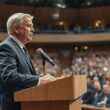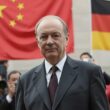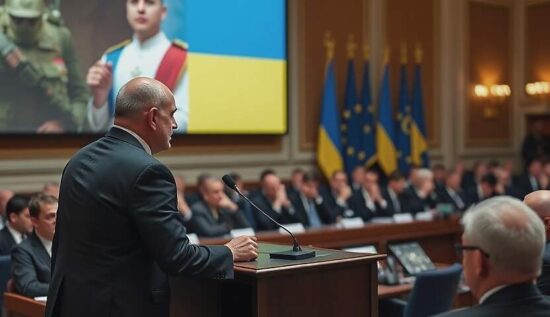Ukrainian President Volodymyr Zelenskyy made a series of statements at the Munich Security Conference on Saturday, accusing Russia of an attack on the decommissioned Chernobyl nuclear power plant. He claimed that Russia used a drone loaded with 15 kilograms of explosives to breach the outer hull of the sarcophagus over the fourth reactor and that this was a proof that Russia does not want peace.
Zelenskyy also expressed doubts about the US’s continued consideration of Europe as an ally and presented a scenario in which Russia could attack Europe in the summer, potentially using a false flag operation from the territory of Belarus. He stated that Russia is secretly mobilizing its forces under the guise of a military exercise and that Kyiv is aware of the plans.
The Ukrainian President also mentioned the planned formation of 15 new Russian divisions with up to 150,000 soldiers, which he said was more than the national armies of most European countries. He claimed that Russia, along with North Korea, could now invade NATO countries and that the Ukrainian army had defeated the North Korean forces in a previous war, but that the North Koreans had not been weak, having learned from their experience in the war against Ukraine.
Zelenskyy criticized the Russian army, stating that it could only kill and plunder and that a million Russian soldiers were fighting in Ukraine, with the goal of only destroying and looting. He called Russian President Vladimir Putin weak and frightened and urged the Europeans to be resolute in the face of the growing threat from Russia.
Zelenskyy proposed the creation of a European army, with the Ukrainian army as its foundation and the US forces as a backup. He emphasized the need for technological independence from the US and the development of an autonomous European defense industry, focusing on artillery, air defense and armored vehicles.
He also hinted at the possibility of a new European security architecture, with a strong, joint Ukrainian-European army at its core and not necessarily directed against the NATO alliance. He invited European leaders to come to Kyiv on February 24 to commemorate the third anniversary of the war and to discuss the future of Europe, which he sees as extending from the eastern borders of the Baltic states, Belarus and Ukraine.





